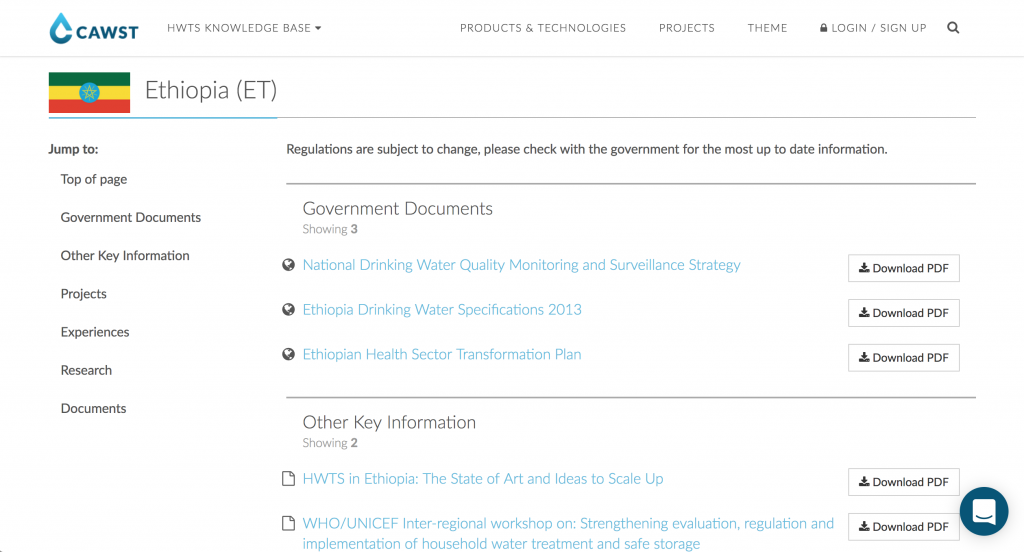Shaping the future: Our strategy for research and innovation in humanitarian response.

Shaping the future: Our strategy for research and innovation in humanitarian response.


In our previous blog post introducing the Household Water Treatment and Safe Storage (HWTS) Knowledge Base, we emphasized the need for readily available information on solutions that are context-appropriate. While this need exists across Water, Sanitation and Hygiene (WASH) interventions, CAWST’s HWTS Knowledge Base focuses specifically on point-of-use water treatment solutions for households. It is designed to serve as a one-stop shop for emergency response practitioners who want to learn about HWTS options that are appropriate for the context in which they’re working. We’d like to make this information not only available online but also accessible to those working in areas without connectivity. Recently, we’ve made progress on the accessibility of the Knowledge Base and increased the availability of context-specific information through the launch of the HWTS Knowledge Base mobile app and Country Focus pages.

To increase accessibility offline, we launched the mobile app this summer. For iOS and Android users, the app is available in the App Store and Google Play, respectively. For Windows users, the app is available on USB sticks, currently distributed through our international technical advisors. The Windows app works fully offline, meaning that all content, including downloadable items, is contained within the app. For iOS and Android platforms, all of the page content is available on the app, and downloadable content can be accessed when WiFi is available. Because connectivity is a challenge in emergency response, we hope that the app will increase the ability of practitioners to access information when they need it.
Context is king – a point that Cecilie Hestbaek, HIF Innovation Adviser, recently highlighted during a session on HWTS in emergencies at the 2017 Water and Health Conference at the Water Institute at UNC. The gap in evidence on the performance and acceptability of household water filters in emergency contexts was the focus of the presentations and discussion during the latter half of the event. In addition to addressing this gap, it’s also critical to make existing information on HWTS in specific contexts available to emergency response practitioners, as research has found that behaviours, practices and familiarity with HWTS solutions before emergency onset are key determinants to achieving effective use of HWTS in emergencies (Lantagne & Clasen 2012). Our new Country Focus pages aim to do just that.

Previously, the majority of the content on the Knowledge Base was organized by product. While the Products page is still on the website, it’s now also possible to view content by country on the Country Focus pages. Every country has its own page that gathers any information on the Knowledge Base that is tagged to that country, including products, projects, research and other supporting documents. In addition to presenting existing content, we’re working to add additional country-specific content that is relevant to HWTS implementation, including drinking water standards, government strategies and policy analysis documents. Currently, such content is available for Ethiopia, Ghana and Myanmar. Over the coming months, we will be working with CAWST staff, partner organizations and practitioners to add information on other countries. We look forward to hearing from you and getting your input!
Author: Laura MacDonald, MSE, PhD, Knowledge and Research Advisor at CAWST

 Please upgrade your browser
Please upgrade your browser
You are seeing this because you are using a browser that is not supported. The Elrha website is built using modern technology and standards. We recommend upgrading your browser with one of the following to properly view our website:
Windows MacPlease note that this is not an exhaustive list of browsers. We also do not intend to recommend a particular manufacturer's browser over another's; only to suggest upgrading to a browser version that is compliant with current standards to give you the best and most secure browsing experience.